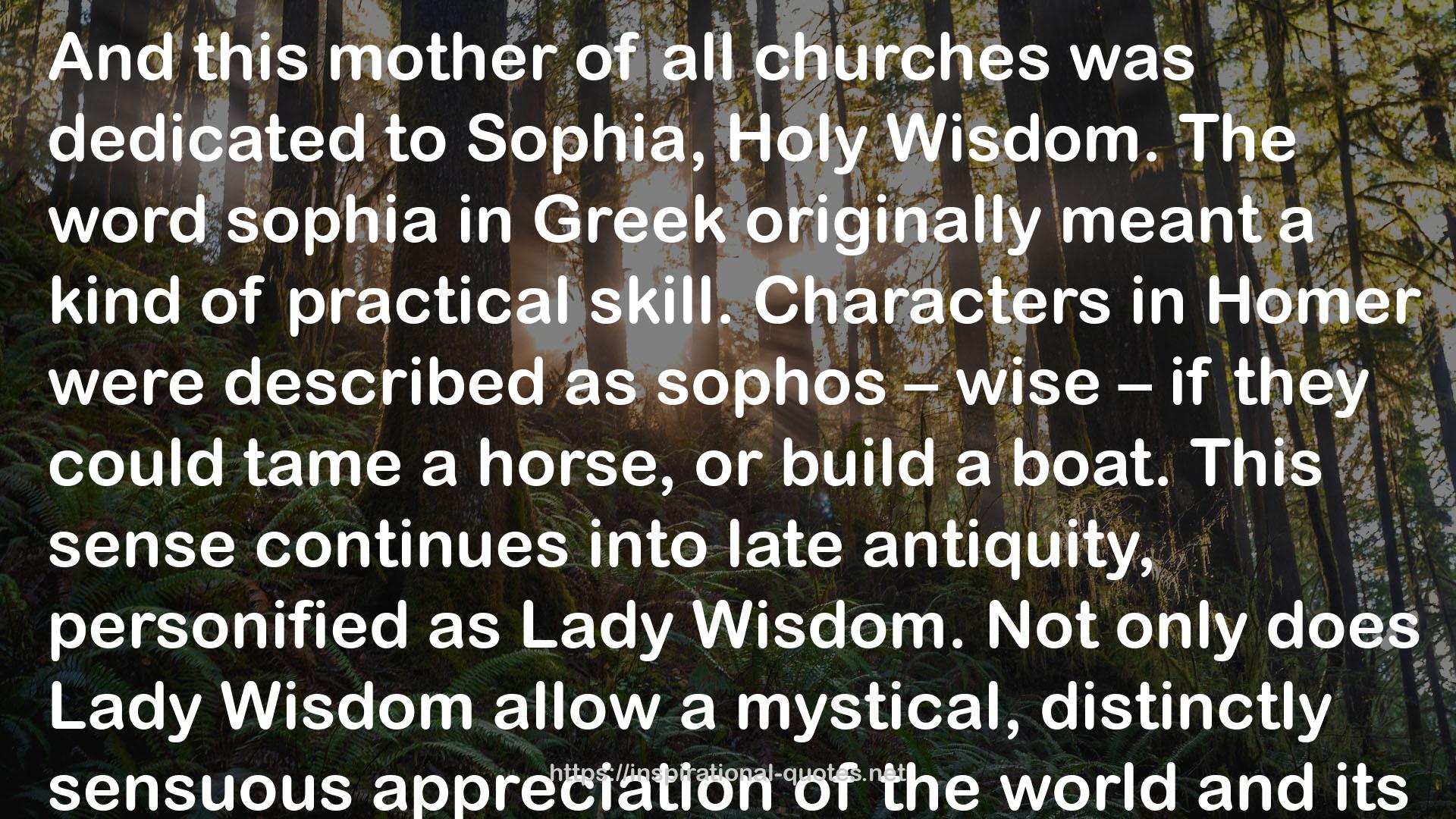" And this mother of all churches was dedicated to Sophia, Holy Wisdom. The word sophia in Greek originally meant a kind of practical skill. Characters in Homer were described as sophos – wise – if they could tame a horse, or build a boat. This sense continues into late antiquity, personified as Lady Wisdom. Not only does Lady Wisdom allow a mystical, distinctly sensuous appreciation of the world and its mysteries; she encourages a foot-forward, practical engagement with it. This is the wisdom of the streets and of women, not just of men in their study halls. Sophia appears as a fleeting character in the Hebrew Bible and Greek New Testament, as well as in numerous popular religious writings. Lady Wisdom is more frequently found in the Apocrypha – religious works that were often believed to contain inconvenient truths and so were exiled from canonical texts. For many Christians Sophia was understood to be a kind of sublime force which had birthed Jesus himself.
Sophia might not have ended up in the canon, but she was a popular and populist notion in both antiquity and the medieval world. Our word wisdom and Sophia share a common, prehistoric sense – the Proto-Indo-European root suggests a clear-sighted understanding of the world. The Sophia church was also dedicated to the Logos – the Word – the manifest and recondite Wisdom of God. So this great building was made up not just of bricks and mortar but of an idea – an imaginative understanding of the eternal power of both masculine and feminine ways of being wise, of the possibilities of negotiating the world with both mind and mystery. It is a remarkable statement from a building at the heart of the city that considered itself the heart of the world.
In the Hebrew Bible Sophia’s equivalent Hokhma is described in Proverbs 8 as being ‘better than rubies, and all the things that may be desired . . . I am understanding . . . set up from everlasting, from the beginning . . . whoso findeth me findeth life’. The building of Haghia Sophia was not just a placatory offering to the divine; it was an answer. "
― Bettany Hughes , Istanbul: A Tale of Three Cities
